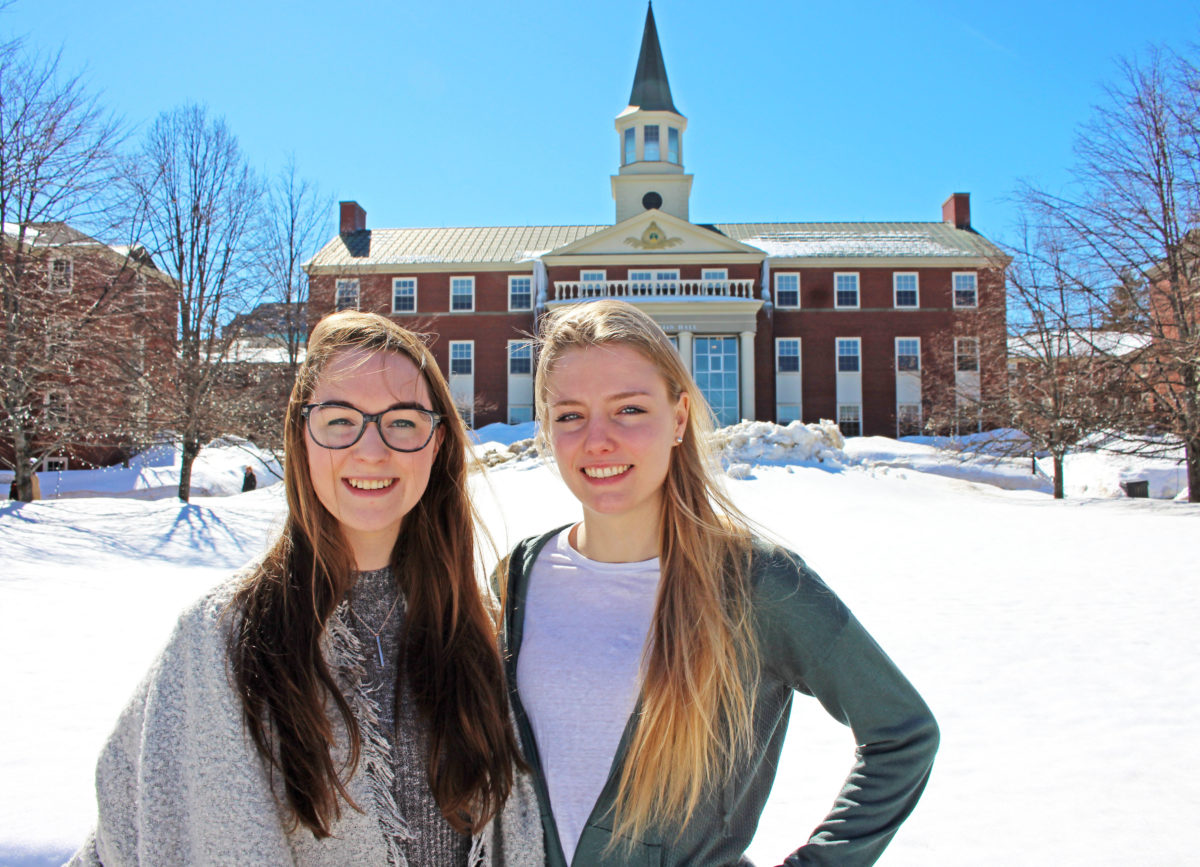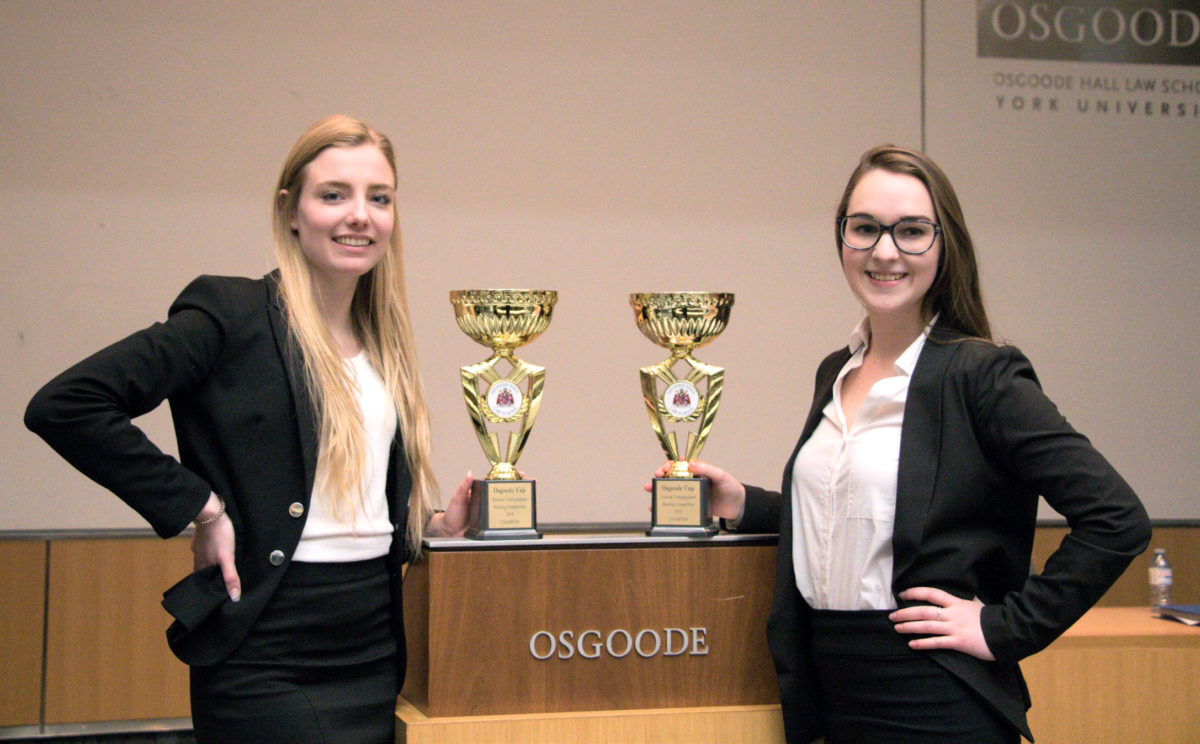Fourth-year students Kelly Brennan and Brianna Workman represented St. Thomas University at the Osgoode Cup, an undergraduate moot court competition, for the the first time ever – and won.
The Osgoode Cup is held annually at Osgoode Hall Law School in Toronto and took place from March 2 to 3. Brennan and Workman were the only team that didn’t refer to any notes while competing.
“The fact that we won this year without any notes, I think there will be a bit of pressure to get on that level for next year, and that was really cool to kick it up a notch,” said Workman.
Brennan chose STU because of the moot court program. She participated in STU moot court for three years and Workman has been in moot court for two.
The competition started with 109 teams but was reduced to only 16 teams by the final day. Brennan and Workman were one of the final teams.
The pair had only two weeks to prepare and this posed a challenge for them as both Workman and Brennan have busy schedules. Workman is the St. Thomas University Students’ Union president and Brennan was competing in a track championship.

Workman and Brennan prepared by simulating debate scenarios and watching youtube videos of previous winners. Almost all finalists and winners of previous years, as well as their competitors, had many notes with them.
Judges included practicing lawyers and law students. A panel of seven judges were present for the final decision.
The second day of competition, Brennan and Workman prepared seven minute arguments. But the judges agreed to give competitors 10 minutes plus an additional two minutes each if needed, which they weren’t expecting.
“That was something other teams clearly had known and we had no idea they were going to throw us another 10 minutes collectively. So that was definitely a bit of a curve ball,” said Brennan.
Workman and Brennan said the Canadian model of moot court can be more difficult because pairs can’t study the cases they are citing. This leaves room for judges to counter arguments and forces teams to think and debate on the spot.
“[STU moot court] really taught us how to read the case law, how to get off notes and do so effectively [and] how to communicate with the judges in a conversational style,” said Brennan.
Brennan and Workman are both thinking of attending law school.
“I think moot court has definitely, as a whole, been a really strong foundation for me to develop that … [interest] in law in the world of litigation and really given me that hands on experience to things that you would actually do as a lawyer,” said Brennan.

